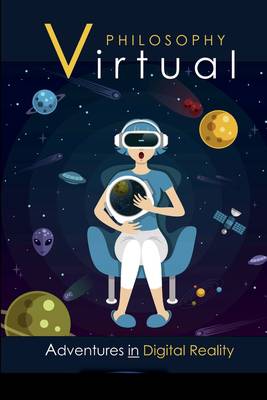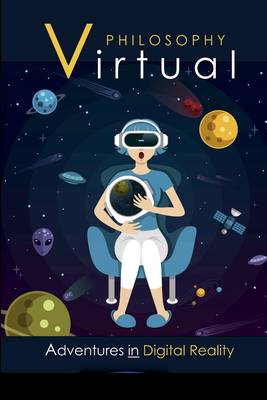
- Retrait gratuit dans votre magasin Club
- 7.000.000 titres dans notre catalogue
- Payer en toute sécurité
- Toujours un magasin près de chez vous
- Retrait gratuit dans votre magasin Club
- 7.000.0000 titres dans notre catalogue
- Payer en toute sécurité
- Toujours un magasin près de chez vous
17,95 €
+ 35 points
Description
I have always wanted to teach a philosophy course utilizing virtual reality technologies. I first introduced the Oculus Quest headset just prior to the onset of the Covid 19 epidemic and it was a huge hit with my students. However, because of the lockdown and mask requirements, we were unfortunately delayed in offering a class that fully integrated VR. Now, thankfully, the time has arrived that makes it possible to incorporate the full potential of virtual reality into the classroom. The following workbook contains twelve distinct assignments that are based on various virtual reality applications and games currently available on the Oculus Quest 2 headset (now rebranded as Meta). Each module focuses on a different aspect of philosophical inquiry, ranging from existentialism to idealism to political science to consciousness studies to the latest developments in artificial intelligence, etc. The structure of each assignment is as follows: 1. Instruction. 2. Reading. 3. VR engagement. 4. Completion. While several of the modules include writing essays, usually in an autobiographical or experimental format, many are concerned with creating new and distinctive content within virtual reality. This includes composing a short soundtrack to accompany a particularly ponderous and deep insight, constructing a new version of Plato's famous "Allegory of the Cave," and building a unique city from the ground up to better understand the necessary checks and balances necessary to manage a thriving and industrious community. This workbook is just one of three required for the "Virtual Reality Philosophy Course" being offered here at Mt. San Antonio College. The second one is entitled, Digital Teleportation: A Philosophic Journey in Virtuality, which at over three hundred pages long contains twenty-five original articles on neuroscience, machine learning, evolutionary biology, and the future of virtual, augmented, and mixed reality. The third required text, and the guiding philosophical overview for the class, is David Chalmers' book, Reality+: Virtual Worlds and the Problems of Philosophy. Each student will also be required to create their own website which will house all the work--written or otherwise--that they produce during the course of the semester and which they can share with their fellow cohorts to exchange ideas.
Spécifications
Parties prenantes
- Auteur(s) :
- Editeur:
Contenu
- Nombre de pages :
- 192
- Langue:
- Anglais
Caractéristiques
- EAN:
- 9781565439580
- Date de parution :
- 28-04-22
- Format:
- Livre broché
- Format numérique:
- Trade paperback (VS)
- Dimensions :
- 152 mm x 229 mm
- Poids :
- 290 g

Les avis
Nous publions uniquement les avis qui respectent les conditions requises. Consultez nos conditions pour les avis.






